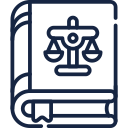
HOGUE + BELONG
LEGAL EXPERTISE,
HUMAN UNDERSTANDING
ABOUT US
HOGUE + BELONG, ATTORNEYS AT LAW
At Hogue + Belong, we have been relentlessly pursuing justice for employees and consumers in California for well over a decade. The attorneys at Hogue + Belong have been consistently recognized as SuperLawyers and Million Dollar Advocates every year since 2014. In 2017, the partners at Hogue + Belong were recognized as litigators of the year. The results achieved by Hogue + Belong speak volumes. With many multi-million dollar verdicts and settlements, and hundreds of grateful clients, Hogue + Belong is one of California’s premier law firms dedicated to seeking justice for victims of sexual harassment, sexual assault, discrimination, wrongful termination, wage and hour violations, class actions, and other employment and consumer violations of law.
Thank you for visiting the official website of Hogue + Belong, APC. Here you will find more information about our practice areas, verdicts and recoveries obtained for clients, recent news, and relevant articles.
Our Services
Our Areas of Expertise
01

Sexual Harassment
Did you know that around 81 percent of women have experienced sexual harassment? One of the most traumatizing events a person can endure is sexual harassment at work. It’s not just repulsive; it’s illegal.
02

Class Action Lawsuits
Hogue + Belong has represented thousands in class actions throughout California against Fortune 500 companies as well as litigating against some of the most capable and prestigious law firms in the nation.
03

Employment Law
Suppose you are in the middle of a legal dispute with your company or are considering filing a lawsuit against your employer. In that case, you’ll want to work with an experienced San Diego employment lawyer.
04
Real Estate
05
Civil Litigation
06
Disability Discrimination
Did you know that over a third of all labor law cases filed with the EEOC are due to disability discrimination? This statistic is less surprising when you consider that 61% of employees report having either witnessed or personally experienced discrimination.
07
Unlawful Security Deposit Retention
As a tenant, you have certain rights that are guaranteed by law. Unfortunately, some landlords may try to take advantage of tenants by, for example, making unfair deductions from security deposits, charging excessive late fees, or engaging in other questionable practices.
If you, your family, or roommates have ever moved out of an apartment complex only to be told by the landlord that you will not be receiving your full security deposit back, you may have the right to sue the landlord.
TESTIMONIAL
What People Say
“The attorneys and staff at Hogue + Belong were extremely professional and ensured that my case was well taken care of. I am so grateful that I found them. Their dedication and care for their clients was above and beyond. Anytime I had questions Mr. Hogue or Mr. Belong were quick with their replies and made sure I was kept in the loop on the status of my case. They worked really hard and fought for me all the way through trial and appeals. Because of their hard work, they were able to get me justice. I would recommend them to anyone I know, they have a passion for their profession, and it shows.”

Rosario Contreras
– Delighted Client


LEGAL EXPERTISE,
OUR TEAM
About Our Partners

Jeffrey L. Hogue

Tyler J. Belong
LATEST
Breaking News
AWARD
Hogue + Belong Named Litigators of the Year
READ FULL STORY



